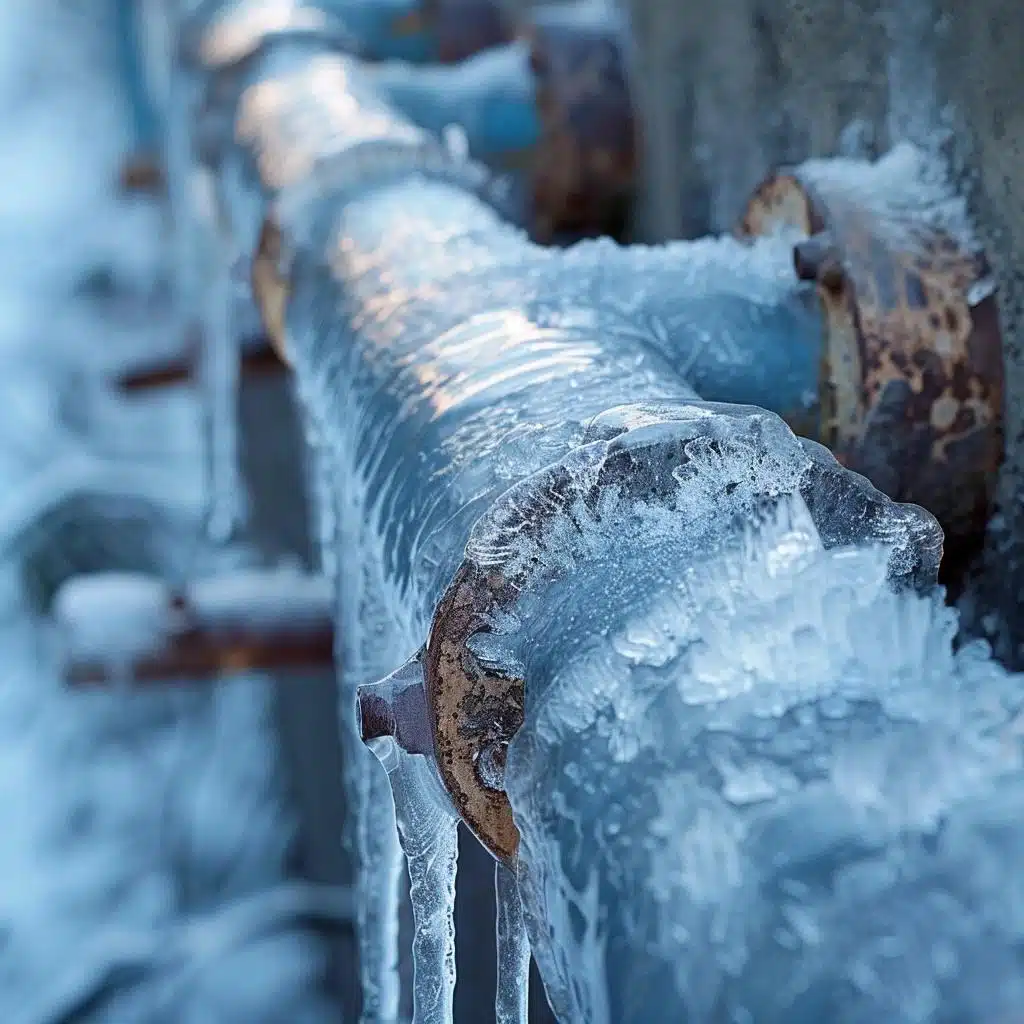The writer is making several great observations related to 6 Ways to Prevent Frozen Pipes as a whole in the article down the page.

Winter can wreak havoc on your pipes, specifically by freezing pipelines. Below's just how to stop it from taking place and what to do if it does.
Intro
As temperatures decline, the danger of icy pipelines boosts, possibly resulting in costly fixings and water damages. Recognizing how to prevent icy pipes is essential for homeowners in cool climates.
Understanding Icy Pipes
What triggers pipes to ice up?
Pipes freeze when exposed to temperatures listed below 32 ° F (0 ° C) for prolonged durations. As water inside the pipes ices up, it increases, putting pressure on the pipeline walls and potentially creating them to burst.
Dangers and problems
Icy pipes can cause water disruptions, residential property damage, and expensive repair work. Ruptured pipelines can flooding homes and create comprehensive architectural damage.
Indications of Frozen Pipeline
Identifying icy pipelines early can stop them from breaking.
Just how to determine frozen pipelines
Search for reduced water circulation from taps, uncommon smells or noises from pipes, and noticeable frost on revealed pipes.
Prevention Tips
Shielding prone pipes
Cover pipelines in insulation sleeves or use warmth tape to secure them from freezing temperature levels. Focus on pipelines in unheated or outside locations of the home.
Home heating techniques
Maintain indoor areas properly warmed, particularly locations with plumbing. Open closet doors to allow cozy air to flow around pipes under sinks.
Securing Outdoor Plumbing
Garden tubes and outdoor faucets
Detach and drain pipes yard hoses before wintertime. Install frost-proof faucets or cover exterior faucets with protected caps.
What to Do If Your Pipelines Freeze
Immediate activities to take
If you think frozen pipes, maintain faucets open to soothe stress as the ice melts. Use a hairdryer or towels taken in hot water to thaw pipelines slowly.
Long-Term Solutions
Architectural modifications
Take into consideration rerouting pipes far from exterior walls or unheated locations. Add additional insulation to attic rooms, basements, and crawl spaces.
Upgrading insulation
Buy top quality insulation for pipes, attic rooms, and wall surfaces. Proper insulation helps preserve regular temperatures and reduces the danger of icy pipelines.
Final thought
Protecting against icy pipelines calls for proactive steps and quick actions. By recognizing the reasons, indicators, and safety nets, home owners can protect their pipes during winter.
Helpful Tips to Prevent Frozen Pipes this Winter
UNDERSTANDING THE BASICS: WHY PIPES FREEZE AND WHY IT’S A PROBLEM
Water freezing inside pipes is common during the winter months, but understanding why pipes freeze, and the potential problems it can cause is crucial in preventing such incidents. This section will delve into the basics of why pipes freeze and the associated problems that may arise.
THE SCIENCE BEHIND FROZEN PIPES
When water reaches freezing temperatures, it undergoes a physical transformation and solidifies into ice. This expansion of water as it freezes is the primary reason pipes can burst. As the water inside the pipe freezes, it expands, creating immense pressure on the walls. If the pressure becomes too great, the pipe can crack or rupture, leading to leaks and water damage.
FACTORS THAT CONTRIBUTE TO PIPE FREEZING
Low Temperatures: Extremely cold weather, especially below freezing, increases the risk of pipes freezing. Uninsulated or Poorly Insulated Pipes: Pipes located in unheated areas, such as basements, crawl spaces, or attics, are more prone to freezing. Insufficient insulation or lack of insulation altogether exacerbates the problem. Exterior Wall Exposure: Pipes running along exterior walls are susceptible to freezing as they encounter colder temperatures outside. Lack of Heating or Temperature Regulation: Inadequate heating or inconsistent temperature control in your home can contribute to frozen pipes. PROBLEMS CAUSED BY FROZEN PIPES
- Pipe Bursting: As mentioned earlier, the expansion of water as it freezes can cause pipes to burst, resulting in significant water damage.
- Water Damage: When pipes burst, it can lead to flooding and water damage to your property, including walls, ceilings, flooring, and personal belongings.
- Structural Damage: Prolonged exposure to water from burst pipes can compromise the structural integrity of your home, leading to costly repairs.
- Mold and Mildew Growth: Excess moisture from water damage can create a favorable environment for mold and mildew growth, posing health risks to occupants.
- Disrupted Water Supply: Frozen pipes can also result in a complete or partial loss of water supply until the issue is resolved.
WHY CERTAIN PIPES ARE MORE PRONE TO FREEZING
- Location: Pipes located in unheated or poorly insulated areas, such as basements, crawl spaces, attics, or exterior walls, are at higher risk of freezing.
- Exterior Pipes: Outdoor pipes, such as those used for irrigation or exposed plumbing, are particularly vulnerable to freezing as they are directly exposed to the elements.
- Supply Lines: Pipes that carry water from the main water supply into your home, including the main water line, are critical to protect as freezing in these lines can affect your entire plumbing system.
- Underground Pipes: Pipes buried underground, such as those connected to sprinkler systems or outdoor faucets, can be susceptible to freezing if not properly insulated.
https://busybusy.com/blog/helpful-tips-to-prevent-frozen-pipes-this-winter/

I have been very occupied with Winter Plumbing Precautions: Preventing Frozen Pipes and I hope you enjoyed the blog posting. Sharing is good. Helping others is fun. I love reading our article about Prevent Frozen Pipes .
Request A Quote